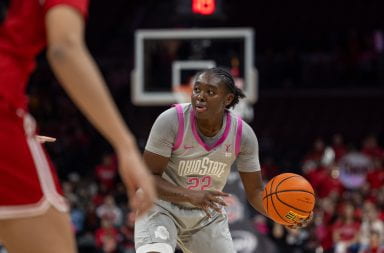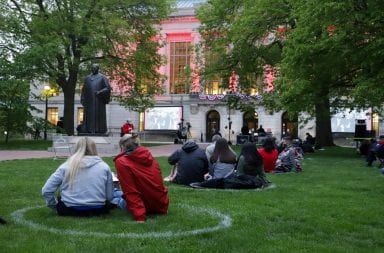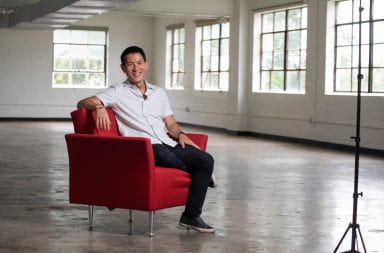Logging onto Facebook this week, I noticed an alarming trend: Those who chose to rush seemed to gain 60-100 friends within days.
That’s a little extreme.
In the day of the social network, the term “friend” is thrown around more freely than a Frisbee in springtime.
Even the people who make the definitions make a provision for the social network: Merriam-Webster’s Dictionary defines a friend as one attached to another by affection or esteem, or simply “acquaintance.”
To quell my own curiosity, I asked several people what the word “friend” meant to them. Christi Salchak, a substitute high school teacher, defines a friend as “someone who knows your heart, someone close to you who you’d spend time with.”
That certainly sounds more like Merriam-Webster’s first definition.
Salchak has a Facebook herself. Though she has an estimated 460 Facebook friends, she estimates she has far fewer “close friends” who adhere to her definition. She describes a “Facebook friend” as a “range of people, from someone you feel is a close friend, to acquaintances.”
Many share similar sentiments.
“A friend is someone who would make a good Catch Phrase or Pyramid partner,” said Mike Nickels, a second-year in industrial and systems engineering at Wright State. Catch Phrase and Pyramid are games in which someone gives verbal clues to his or her partners in hopes of getting them to guess a certain word or phrase. Typically, the better one understands his or her partner, the more success he or she has.
A common denominator is the word “trust.” Trust is one of the most important and rare privileges given to someone. How many of your Facebook friends would you entrust a secret to?
Overwhelmingly, the students and older adults I asked to define a “Facebook friend” answered simply, “someone you know” or “someone you have met once.” The average number of Facebook friends among those I questioned comes just shy of 400, while the average number of “close” friends people felt they had falls consistently between five and 20.
That is a large disparity.
Not everyone is caught up in the virtual popularity contest. Many people use the social network as a tool to keep in touch with close friends from back home, or family members. A few of those surveyed don’t have a Facebook account at all. Students without Facebook describe it as, “a waste of time that detracts from important things.”
Amanda Womack, an employee of the real estate firm, The Connor Group, said she didn’t want to get caught up in the “drama” of Facebook, and it was “just a way for people to be intrusive into my life.” She also noted the ability of potential employers to access personal information.
The social network is a useful and powerful tool. It should be used with caution and taken with a grain of salt. There is no substitute for a meaningful, loving friendship with someone. A true friend is invaluable and hundreds of online “acquaintances” simply won’t fill the void. Now don’t get me wrong, I have just as many “friends” as the next guy, but I try to keep that number in perspective. Thankfully, most people still know the real meaning of friendship, even if Mark Zuckerberg and the people at Facebook do not.


